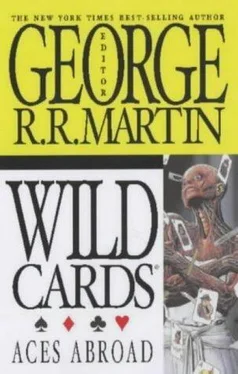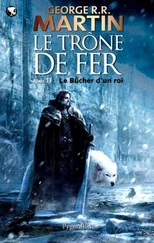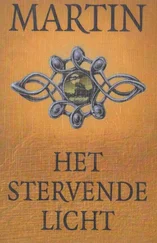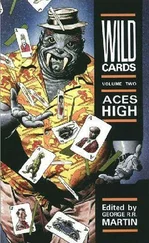George Martin - Aces Abroad
Здесь есть возможность читать онлайн «George Martin - Aces Abroad» весь текст электронной книги совершенно бесплатно (целиком полную версию без сокращений). В некоторых случаях можно слушать аудио, скачать через торрент в формате fb2 и присутствует краткое содержание. Жанр: Фантастика и фэнтези, на английском языке. Описание произведения, (предисловие) а так же отзывы посетителей доступны на портале библиотеки ЛибКат.
- Название:Aces Abroad
- Автор:
- Жанр:
- Год:неизвестен
- ISBN:нет данных
- Рейтинг книги:5 / 5. Голосов: 1
-
Избранное:Добавить в избранное
- Отзывы:
-
Ваша оценка:
- 100
- 1
- 2
- 3
- 4
- 5
Aces Abroad: краткое содержание, описание и аннотация
Предлагаем к чтению аннотацию, описание, краткое содержание или предисловие (зависит от того, что написал сам автор книги «Aces Abroad»). Если вы не нашли необходимую информацию о книге — напишите в комментариях, мы постараемся отыскать её.
Aces Abroad — читать онлайн бесплатно полную книгу (весь текст) целиком
Ниже представлен текст книги, разбитый по страницам. Система сохранения места последней прочитанной страницы, позволяет с удобством читать онлайн бесплатно книгу «Aces Abroad», без необходимости каждый раз заново искать на чём Вы остановились. Поставьте закладку, и сможете в любой момент перейти на страницу, на которой закончили чтение.
Интервал:
Закладка:
"France, at the moment, or England."
The chairman was pleased. "I'm sure we can think of worse places for a business trip." He wrote another note with his pen. " I will authorize you to accompany Yurchenko… to assist in the transition. Charming bureaucratic phrase."
"Thank you."
"Nonsense, you've earned it." The chairman got up and went to the sideboard. That, at least, had not changed. He drew out a bottle of vodka that was almost empty, pouring two glasses full, which finished it. "A forbidden toast-the end of an era!" They drank.
The chairman sat down again. "What will happen to Molniya? No matter how badly he bungled Berlin, he's too valuable to waste in that horrible furnace of theirs."
"He's teaching tactics now, here in Moscow In time, if he's good, they may let him return to fieldwork."
The chairman shuddered visibly. "What a mess." His tight smile -showed a pair of steel teeth. "Having a wild card working for you! I wonder, would one ever sleep?"
Polyakov drained his glass. "I wouldn't."
III.
Polyakov loved the English newspapers. The Sun… The Mirror… The Globe… with their screaming three-inch headlines about the latest royal rows and their naked women, they were bread and circus rolled into one. At the moment some M P was on trial, accused of hiring a prostitute for fifty pounds and then, in The Sun's typically restrained words, "Not getting his money's worth!" ("'it was over so fast,' tart claims!") Which was the greater sin? Polyakov wondered.
A tiny deck on that same front page mentioned that the Aces Tour had arrived in London.
Perhaps Polyakov's affection for the papers derived from professional appreciation. Whenever he was in the West, his legend or cover was that of a Tass correspondent, which had required him to master enough rudimentary journalistic skills to pass, though most Western reporters he met assumed he was a spy. He had never learned to write well-certainly not with the drunken eloquence of his Fleet Street colleaguesbut he could hold his liquor and he could find a story.
At that level, at least, journalism and intelligence were not mutually exclusive.
Alas, Polyakov's old haunts were unsuitable for a rendezvous with the Dancer. Recognition of either of them would be disastrous for both. They could not, in fact, use a public house of any kind.
To make matters worse, the Dancer was an uncontrolled agent -a "cooperative asset" to use Moscow Center's increasingly bland jargon. Polyakov had not even seen him in over twenty years, and that had been an accidental encounter following even more years of separation. There were no prearranged signals, no message drops, no intermediaries, no channels to let the Dancer know that Polyakov had come to collect.
Though the Dancer's notoriety made certain kinds of contacts impossible, it made Polyakov's job easier in one respect: If he wanted to know how to find this particular asset-all he had to do was pick up a paper.
His assistant, and future successor, Yurchenko, was busy ingratiating himself with the London rezident; both men showed only a passing interest in Polyakov's comings and goings, joking that their soon-to-be- retired friend was spending his time with King's Cross whores-"Just be sure you don't wind up in the newspapers, Georgy Vladimirovich," Yurchenko had teased. "If you do… at least get your money's worth!"-since such behavior by Polyakov was not unprecedented. Well… he had never married. And years in Germany, particularly in Hamburg, had given him a taste for pretty young mouths at affordable prices. It was also quite true that the KGB did not trust an agent who possessed no notable weakness. One vice was tolerated, so long as it was one of the controllable ones-alcohol, money, or women-rather than, say, religion. A dinosaur such as Polyakov-who had worked for Beria, for God's sake!-having a taste for honey… well, that was considered rakish, even charming.
From the Tass office near Fleet, Polyakov went alone to the Grosvenor House Hotel, riding in one of the famous English black cabs this one actually belonged to the Embassy down Park Lane to Knightsbridge to Kensington Road. It was early on a work day and the cab crawled through a sea of vehicles and humanity. The sun was up, burning off the morning haze. It was going to be a beautiful London spring day.
At Grosvenor House, Polyakov had to talk his way past several very obvious guards while noting the presence of several discreet ones. He was allowed as far as the concierge station, where he found, to his annoyance, another young woman in place of the usual old scout. This one even looked like the chairman's new gatekeeper. "Will the house telephone put me through to the floors where the Aces Tour is staying?"
The concierge frowned and framed a reply. Clearly the tour's presence here was not common knowledge, but Polyakov preempted her questions, as he had gotten past the guards, by presenting his press credentials. She examined them-they were genuine in any case-then guided him to the telephones. "They might not be answering at this hour, but these lines are direct."
"Thank you." He waited until she had withdrawn, then asked the operator to ring through to the room number one of the Embassy's footmen had already provided.
"Yes?" Polyakov had not expected the voice to change, yet he was surprised that it had not.
"It's been a long time… Dancer."
Polyakov was not surprised by the long silence at the other end. "It's you, isn't it?"
He was pleased. The Dancer retained enough tradecraft to keep the telephone conversations bland. "Didn't I promise that I would give-you a visit someday?"
"What do you want?"
"To meet, what else? To see you."
"This is hardly the place-"
"There's a cab waiting out front. It'll be easy to spot. It's the only one at the moment."
"I'll be down in a few minutes."
Polyakov hung up and hurried out to the cab, not forgetting to nod to the concierge again.
"Any luck?"
"Enough. Thank you."
He slipped into the cab and closed the door. His heart was pounding. My God, he thought, I'm like a teenager waiting for a girl!
Before long the door opened. Immediately Polyakov was awash in. the Dancer's scent. He extended his hand in the Western fashion. "Dr. Tachyon, I presume."
The driver was a young Uzbek from the Embassy whose professional specialty was economic analysis, but whose greatest virtue was his ability to keep his mouth shut. His total lack of interest in Polyakov's activities and the challenge of navigating London's busy streets allowed Polyakov and Tachyon some privacy.
Polyakov's wild card had no face, so he had never been suspected of being an ace or joker. That, and the fact that he had only used his powers twice:
The first time was in the long, brutal winter of 1946-47, the winter following the release of the virus. Polyakov was a senior lieutenant then, having spent the Great Patriotic War as a zampolit, or political officer, at the munitions factories in the Urals. When the Nazis surrendered, Moscow Center assigned him to the counterinsurgency forces fighting Ukrainian nationalists-the "men from the forests" who had fought with the Nazis and had no intentions of giving up. (In fact they continued fighting until 1952.)
Polyakov's boss there was a thug named Suvin, who confessed drunkenly one night that he had been an executioner in the Lubiyanka during the Purge. Suvin had developed a real taste for torture; Polyakov wondered if that was the only possible response to a job that daily required one to shoot a fellow Party member in the back of the neck. One evening Polyakov brought in a Ukrainian teenager, a boy, for questioning. Suvin had been drinking and began to beat a confession out of the kid, which was a waste of time: the boy had already confessed to stealing food. But Suvin wanted to link him to the rebels.
Читать дальшеИнтервал:
Закладка:
Похожие книги на «Aces Abroad»
Представляем Вашему вниманию похожие книги на «Aces Abroad» списком для выбора. Мы отобрали схожую по названию и смыслу литературу в надежде предоставить читателям больше вариантов отыскать новые, интересные, ещё непрочитанные произведения.
Обсуждение, отзывы о книге «Aces Abroad» и просто собственные мнения читателей. Оставьте ваши комментарии, напишите, что Вы думаете о произведении, его смысле или главных героях. Укажите что конкретно понравилось, а что нет, и почему Вы так считаете.












